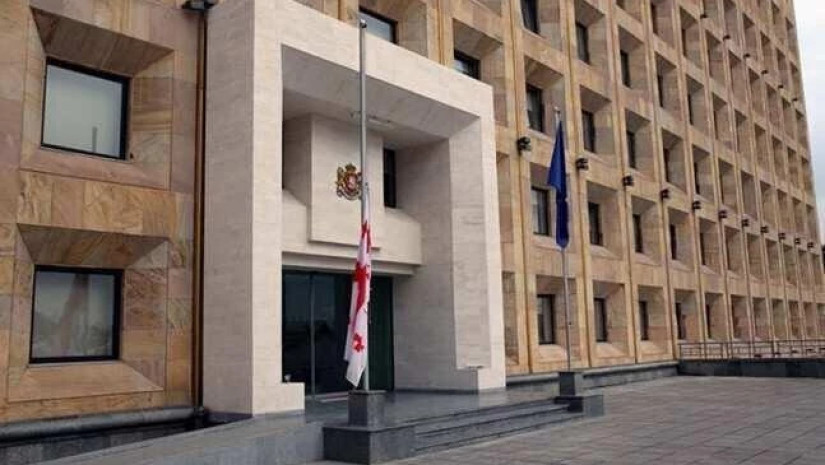The Institute for Development of Freedom of Information (IDFI) has published a report on Access to Public Information in Georgia 2022. The IDFI has been monitoring the availability of public information in Georgia since 2010. IDFI's systematic monitoring significantly contributed to the identification of key trends and problems in access to public information.
This report presents an assessment of the availability of public information in Georgia based on data from 2022. The report also includes an analysis of the trends in the release of public information in 2010-2022 and the rating of access to public information in public institutions.
IDFI used the methodology and criteria developed in 2011 for compiling the ratings and evaluating the availability of information.
In 2022, IDFI also implemented the project "Improving Access to Public Information by the Media", the goal of which was to provide legal support to the media in matters related to public information. The mentioned project significantly contributed to the identification of issues of wider public interest and the drafting of relevant information requests, the activation of the litigation process and the detection of systemic problems related to the availability of public information. The statistical data presented in this report also includes the results of the requests sent by the beneficiaries of the mentioned project.
Main Findings
- Out of 7,582 requests sent to 374 public institutions in 2022, IDFI received answers to only 4,385 (58%);
- Out of 7,582 requests sent to public institutions in 2022, IDFI received information within the prescribed 10-day period in 2,640 cases (35%);
- In 2022, the non-response rate for each point in IDFI's standard requests amounts to at least 41%. Among them, most agencies (59%) ignored or refused to answer the points related to the disclosure of internal audit reports;
- In 2022, the unanswered information requests related to the Russia-Ukraine war and its impact on Georgia were particularly problematic. For example, the Administration of the Government of Georgia did not answer the request for information about the humanitarian aid provided to Ukraine, the Maritime Transport Agency did not disclose the information related to the attempts of ships under international sanctions to enter the ports of Georgia;
- In 2022, according to the categories of institutions, in percentage terms, the largest number of requests were refused or left unanswered by state LLCs and NNLEs (90% unanswered, refusal); Others were LEPLs subordinate to ministries (83% did not answer, refused) and central public institutions (66% did not answer, refused);
- The highest rate of complete responses (69% complete) was observed in the group of public institutions that includes: the government and ministries of Adjara A/R, as well as the government of Abkhazia A/R and the administration of South Ossetia.
- In 2022, only 9 public institutions fully provided public information within the 10-day timeframe (including the Bureau of Public Security, the Office of the Public Defender, the Ministry of Education, Culture and Sports of Adjara);
- In 2022, 69 institutions (including 49 agencies subordinate to ministries) were found to have left all requests from IDFI unanswered;
- In 2022, the rate of access to information of 130 public institutions is less than 50%;
- Among the central public institutions, the highest rates of access to public information were observed for the Administration of the President of Georgia (95.36%) and the apparatus of the Parliament of Georgia - (85.39%); The indicator of the Administration of the Government of Georgia was only 18.31%;
- In 2022, IDFI standard requests were left unanswered by all ministries, resulting in a response rate ranging from only 0% to 40%. Among them, the Ministry of Culture, Sports and Youth was the lowest (0%);
- In 2022, results for all ministries significantly worsened in the access to information rating compared to the previous year. Among them, the Ministry of Environmental Protection and Agriculture (-88%), the Ministry of Regional Development and Infrastructure (- 84%), the Ministry of Health (-66%);
- In 2022, the response rates of public institutions decreased by 24 percent compared to the previous year and amounted to 58%. This indicator is the lowest result since 2010;
- In 2022, IDFI prepared 56 administrative complaints and 16 administrative lawsuits. Despite the legal complexity of the dispute, the court has extended the term of consideration of the case to 5 months for all the cases received in the proceedings;
- The rate of complete answers in 2022 is 33%, the lowest recorded result since 2010;
- In 2022, compared to the previous year, the percentage of responses received decreased the most in the case of ministries (-62%), LEPLs subordinate to ministries (-65%), and administrations of state Governors (-26%);
- In 2022, compared to the previous year, the response rate was slightly improved in the agencies included in the category of independent agencies (+1%) as well as Municipal Councils (+4%).
- In 2022, the rate of providing public information on time decreased by 19% and amounted to 35%. This figure is the lowest since 2010.
- In 2022, the rate of timely disclosure of public information decreased by 19%, amounting to 35%. This figure is the lowest since 2010.
Conclusion
According to the monitoring conducted by IDFI in 2022, the quality of access to public information in the country has decreased significantly compared to the previous year. The rate of responses (58%) from public institutions in 2022 is the lowest observed since 2010. There was an established practice of a critical threshold of 80% on the rate of responses after 2013, which was successfully maintained until 2022.
The rate of access to public information in most categories of public institutions has declined in 2022, and the ministries and their subordinate bodies that have actively left the letters of FOI requests unanswered should especially be highlighted.
The radical decline in the rate of responses received from public institutions in 2022 can be interpreted as negative changes in terms of accessibility of public information in a number of agencies, which was facilitated by the desire to cover up the requested information. Furthermore, the precedents created over the years by the lack of integrity of influential agencies and officials regarding freedom of information can be considered as one of the important factors encouraging the lack of integrity of other public institutions as well. For example, the Administration of the Government of Georgia, which is the main coordinating agency of the executive public institutions, has been violating the requirements of the Georgian legislation for years and has significantly hindered the accessibility of public information. In addition, the former Minister of Justice, who is the current Minister of Culture of Georgia, deliberately limits the accessibility of public information in the subordinate administrative bodies, which could have a negative effect on other public institutions as well.
The extent of the deterioration of the accessibility of public information in the short time period raises significant concerns regarding the political decision of the Georgian authorities to limit freedom of information in the country.
The deterioration of access to public information in 2022 should be considered a critical problem, as the conditions established by the European Union for granting candidate status are closely related to the increase in accountability and transparency of public institutions, with access to public information named as one of the significant problems in this regard. Consequently, the deterioration of access to public information will have a negative impact on the process of Georgia's integration into the European Union.
A sharp decline in the accessibility of public information in the short time period raises significant questions regarding the institutional sustainability of accountability mechanisms in a number of government agencies. The impact of the factors on the quality of publicity discussed above clearly indicates the need to create more effective mechanisms to ensure accessibility of public information.
















